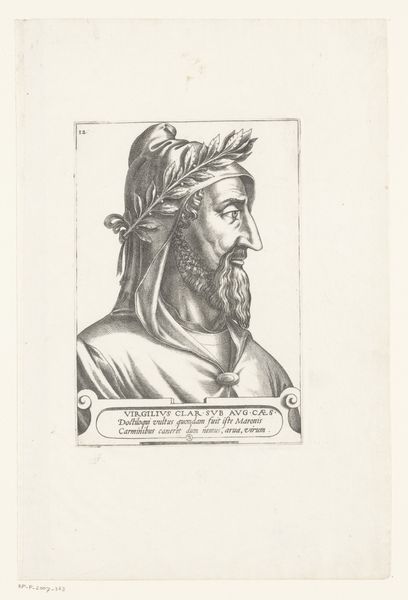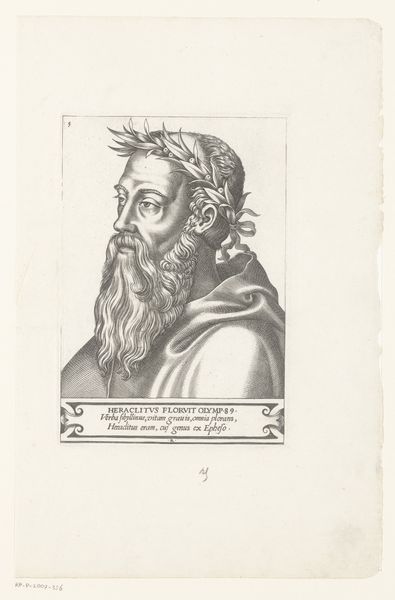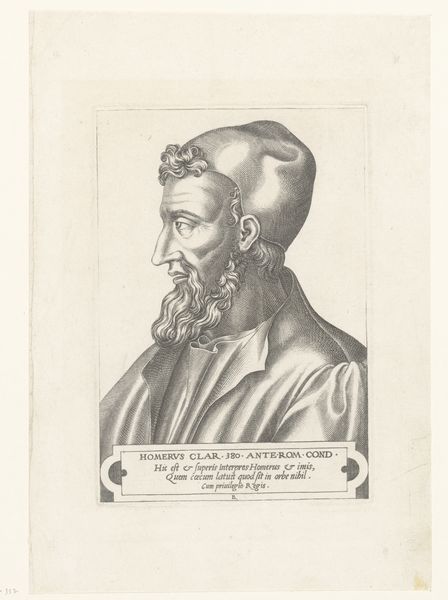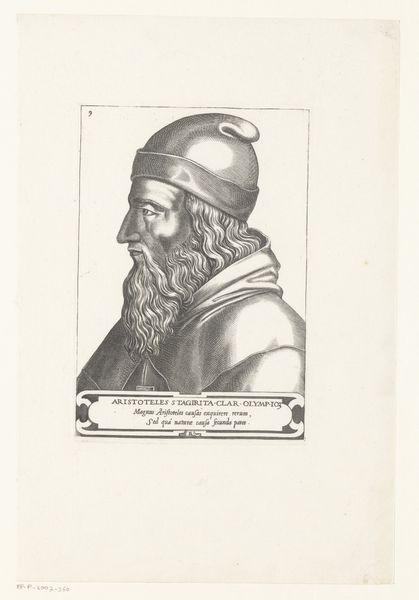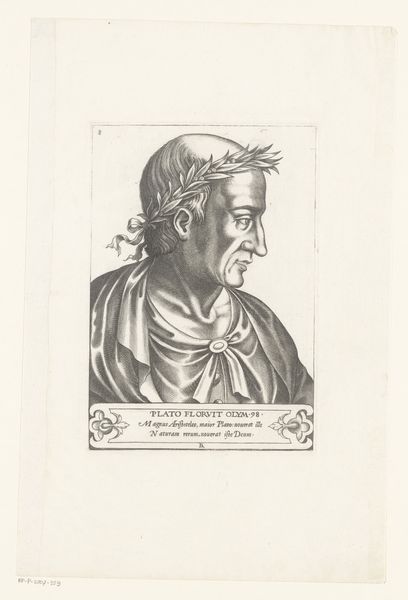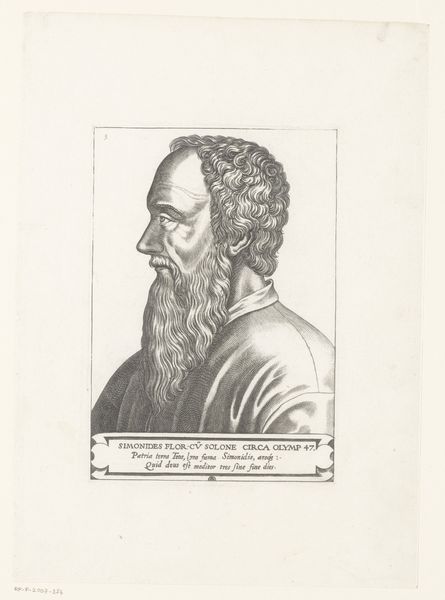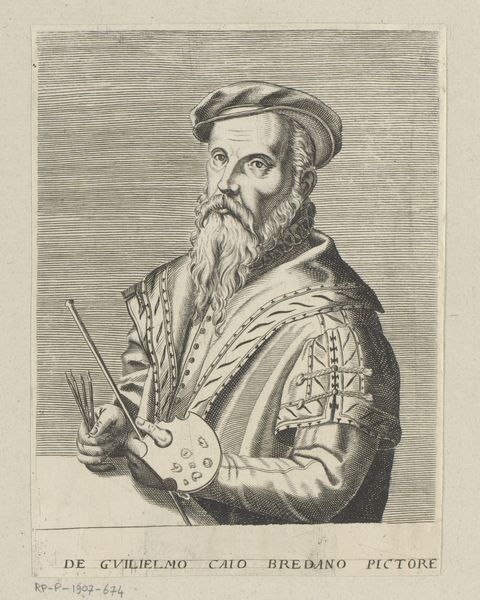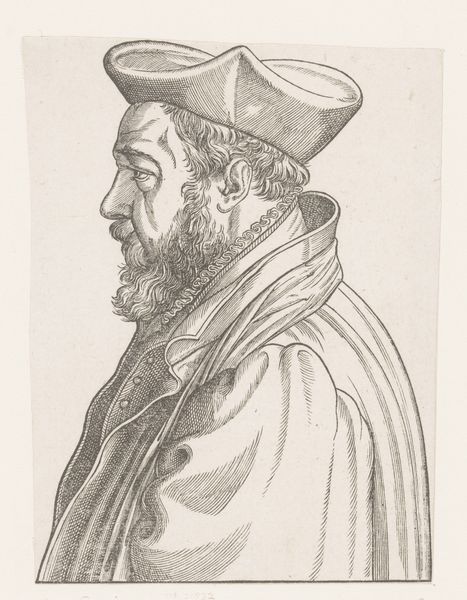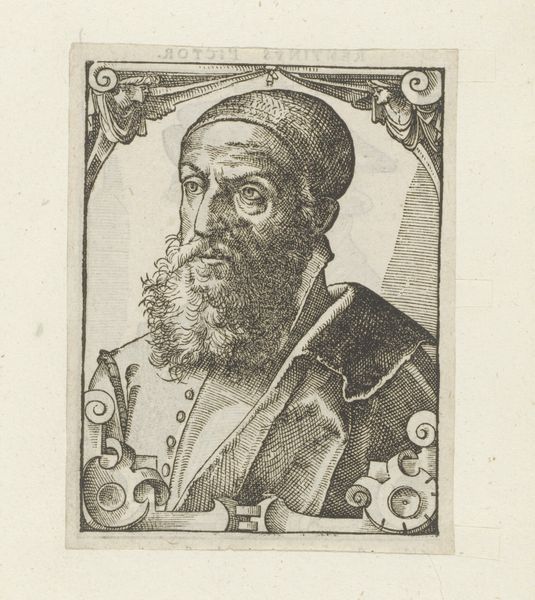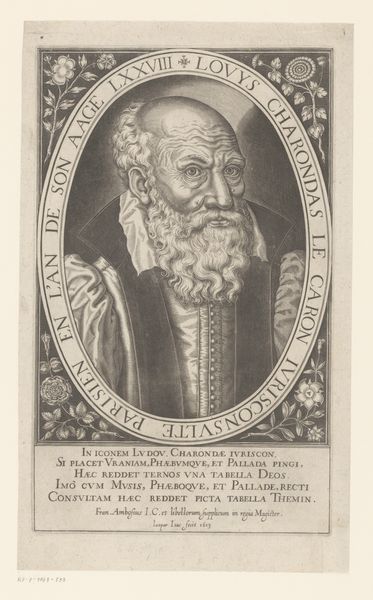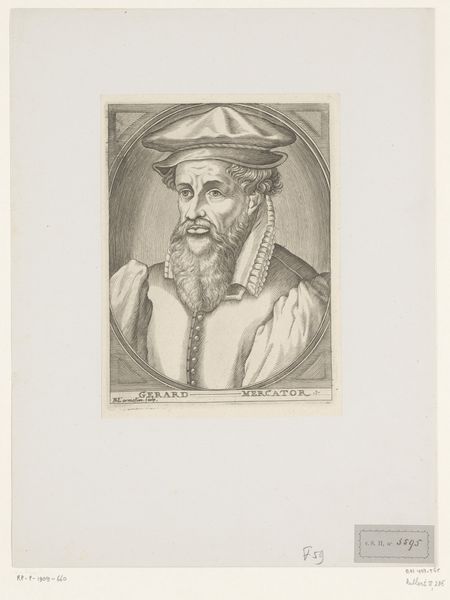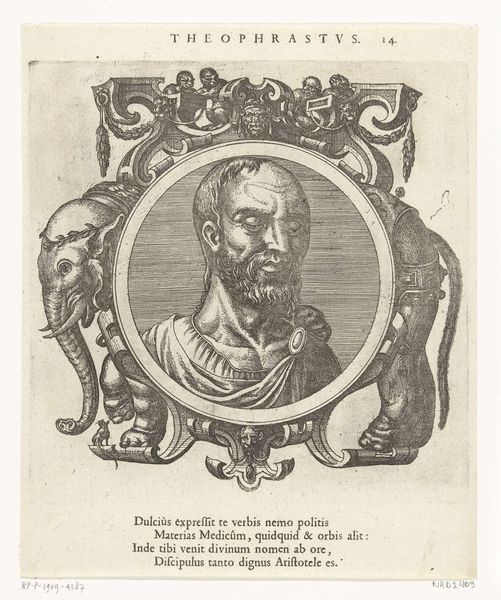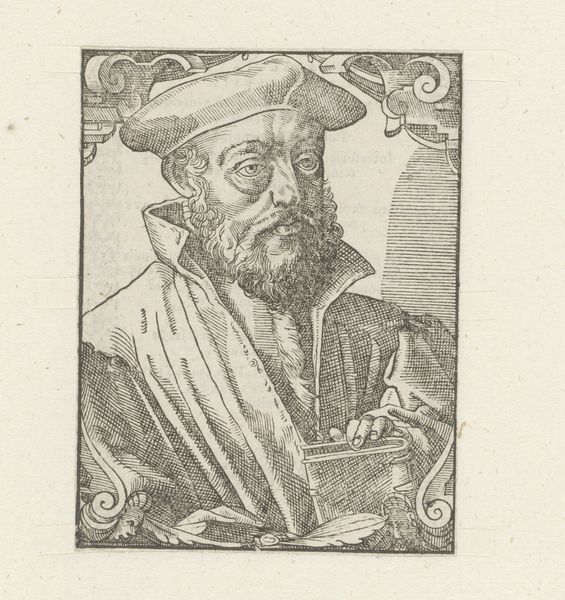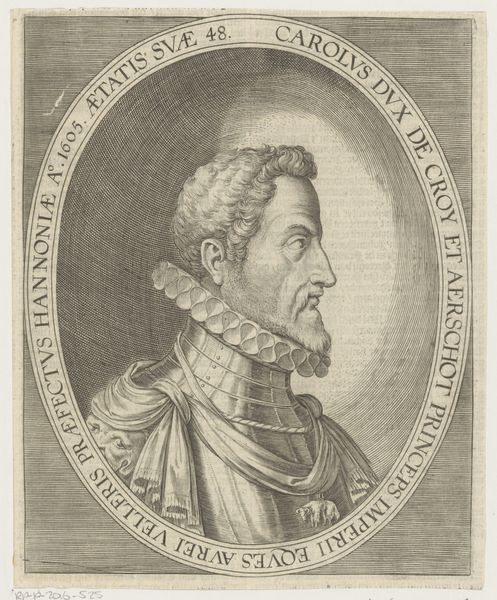
print, engraving
#
portrait
# print
#
old engraving style
#
figuration
#
11_renaissance
#
limited contrast and shading
#
line
#
northern-renaissance
#
engraving
Dimensions: height 175 mm, width 121 mm
Copyright: Rijks Museum: Open Domain
This is René Boyvin’s engraving of Zeno of Citium, made in France sometime in the second half of the 16th century. Zeno, the founder of Stoicism, died almost two thousand years before Boyvin made this print, so we might wonder about its purpose and meaning at this later date. What’s immediately apparent is the conscious attempt to associate the image with classical antiquity. Zeno is depicted in profile, a common trope in ancient coins and sculptures, emphasizing his connection to that historical period. The laurel wreath signifies honor and victory, typical of Roman and Greek portraiture. Even the Latin inscription reinforces this classical connection, lending the image an air of scholarly respectability. But it’s the 16th century we need to focus on. This was a time of intellectual revival, with renewed interest in classical philosophy. By invoking Zeno, Boyvin and his contemporaries aligned themselves with the wisdom and virtue of the ancient world. Understanding this image requires delving into the printing and publishing industries of the time, where these classical images circulated widely.
Comments
No comments
Be the first to comment and join the conversation on the ultimate creative platform.
